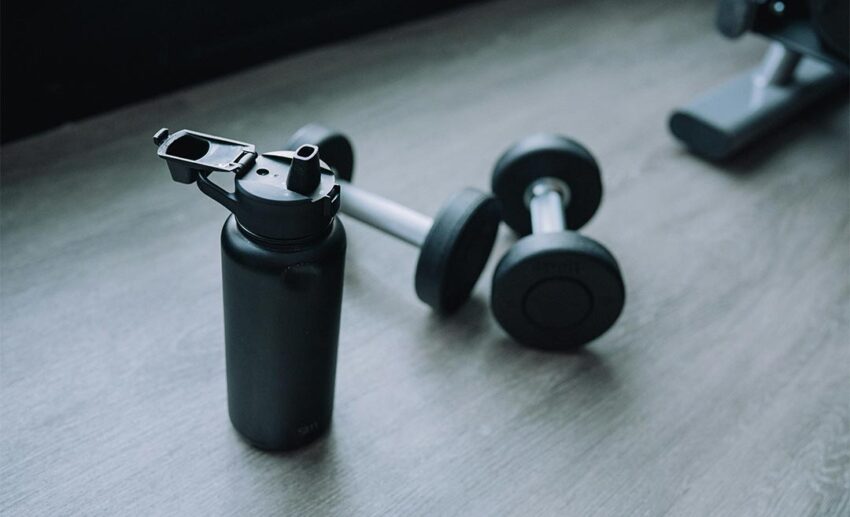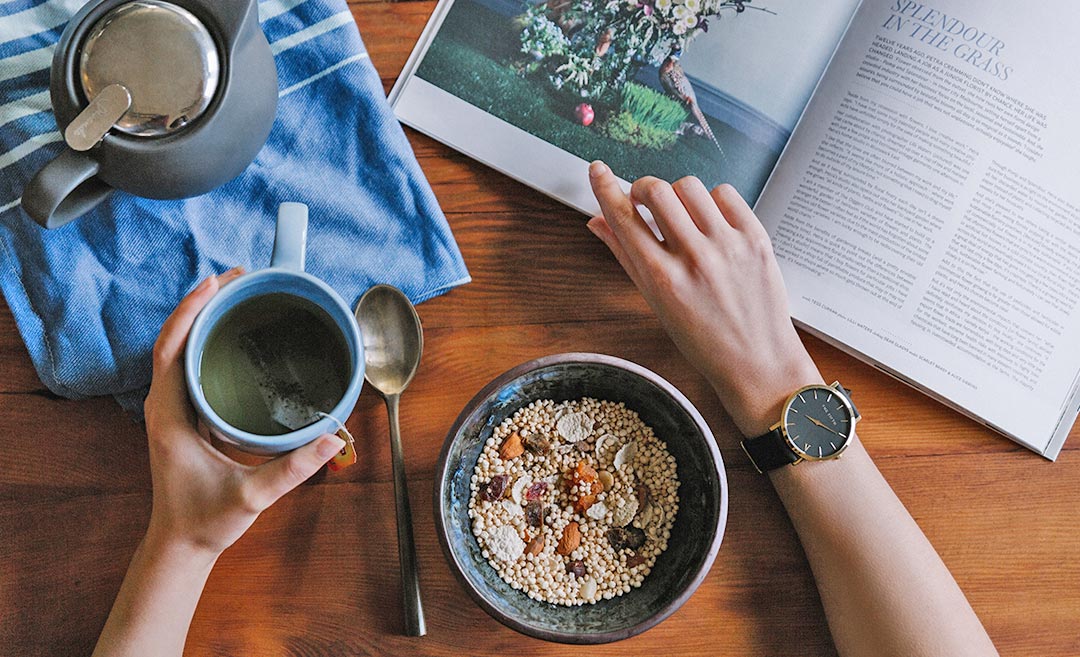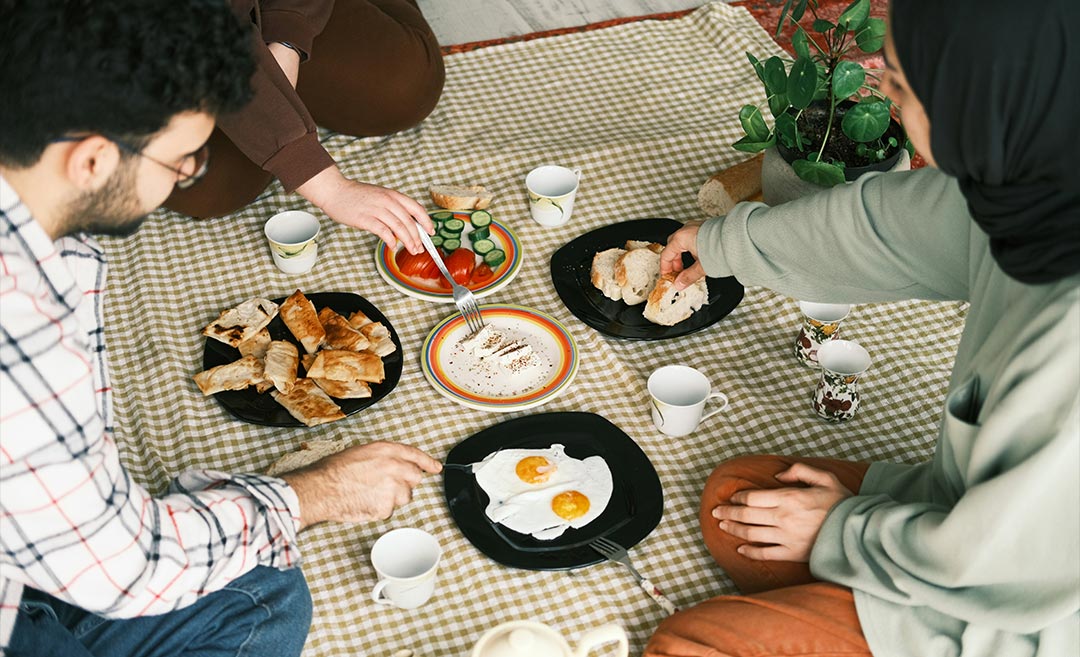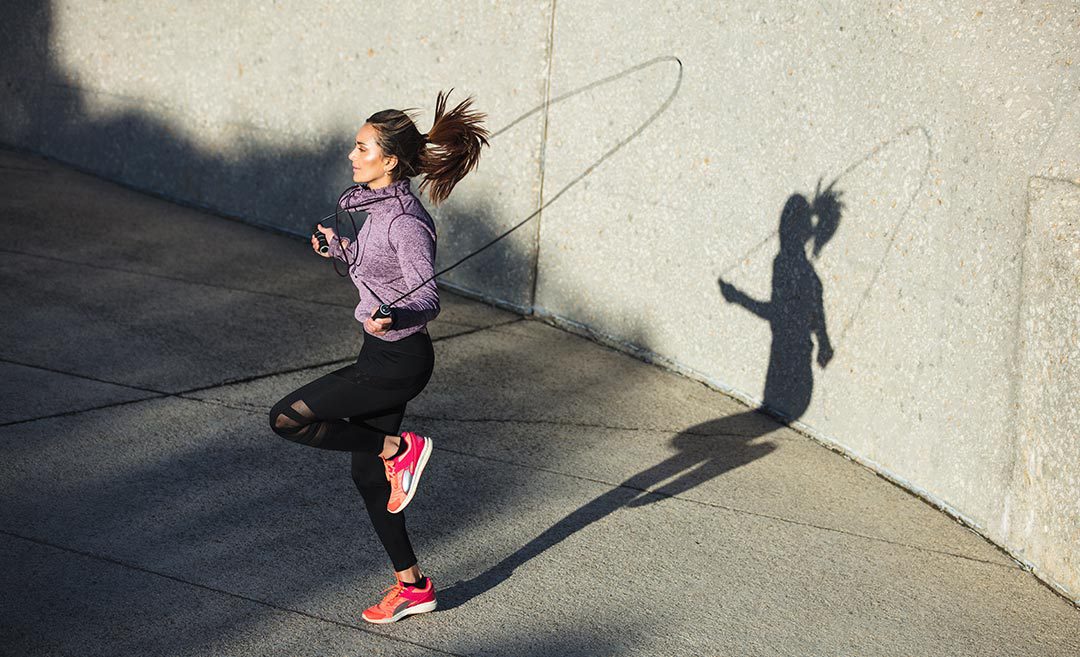Ramadan is a holy month for all Muslims around the world. It’s also a month-long period of fasting, during which eating, drinking, and other activities are prohibited from fajr (before sunrise) to maghrib (sunset). Essentially, Muslims fast during the day and break their fast at night, having only two main meals per day. Besides being a time for fasting, it is also an opportunity for those practising to focus on spiritual reflection, improvement, and community.
That said, working out while fasting can pose some challenges, mainly due to the altered eating and sleeping schedules. But that’s not to say it’s completely impossible. As someone who has practised what she is preaching and is surrounded by athletes who continue to workout during Ramadan, here are some practical tips.
It’s all about adjustment, they say
1. Hydration is key

Let’s talk about the most important thing: staying hydrated. This can be difficult when you’re fasting throughout the day, right? Not if you strategise. With fasting hours going from dawn till dusk, you must gulp plenty of water between iftar (evening meal) and suhoor (pre-dawn meal) to avoid dehydration.
Pro-tip: In addition to drinking water, add electrolyte drinks once you’ve broken the fast, as this helps you rehydrate. Also, incorporate foods high in water content like watermelon, salads, coconut water, and soups during iftar and suhoor to ensure you take those liquids.
2. Keep it balanced on your plate
While it’s completely fine to snack on some indulgent things when breaking fast, most athletes or people who workout often during Ramadan pay close attention to what’s on their plate. Incorporate a well-balanced diet of good carbohydrates, high protein, and healthy fats. Suhoor especially should include complex carbs that will keep you feeling full and energised for the long day of fasting.
The quality of your nutrition during this time is important, as your body will need the right nutrients for recovery and enough calories for energy for the next day. Limit processed foods during this month, as they’re often high in sugar and fat. If we’re being honest, this can lead to feeling sluggish and uncomfortable, which takes away from your fasting experience.
Try not to overeat as it’s easy to overestimate how much you need when you’re hungry. Break your fast with two dates and lots of water. If you find yourself not being able to stomach much, have smaller meals throughout the evening hours to refuel. Don’t have more than what you normally would outside of Ramadan.
Pro-tip: Never skip suhoor, as it’s an important meal that preps you for the day. Include foods high in proteins, which help you stay full for longer and high-fibre foods that release energy slowly.
3. Understand your body
It’s important to recognise the signs of dehydration. If you’re feeling dizzy, exhausted, and on the brink of being unwell, you may need to break your fast earlier than you’re supposed to for health reasons. It’s also a sign that you can take a break from your workouts.
Pro-tip: Research the symptoms of dehydration so you’re well-informed and know when to seek medical attention.
Creating a routine for the month
4. Timing matters

Working out while fasting is not easy, especially if you live in a warm, tropical climate. Add on life’s daily stressors, and it becomes even more challenging. So, the key here is to find the right time for you. The best time to clock in a workout during Ramadan would be right before suhoor, which means you’d have to wake up at an ungodly hour. Or, do it right before iftar. The worst time to workout is in the middle of fasting hours as you will exhaust yourself and be unable to refuel.
Pro-tip: When asked, athletes say they prefer to exercise right before iftar. This allows them to eat and drink right after working out, which helps replenish the energy and much-needed hydration their bodies need.
5. Switch up your workouts
Scale it down, way down. These are challenging words for someone used to high-intensity workouts, but during Ramadan, focus on quality. This means opting for light to moderate activities. While you can still strength train – and most athletes do – replace some days with more moderate exercises like walking, mobility, or even yoga.
This is a time to maintain, not break personal records. Keep your workouts shorter than usual, especially during the first few days of fasting. Take more rests in between sets and lower your reps if you need to. Listen to your body and avoid pushing yourself too hard—the last thing you want to do is injure yourself.
For those not used to working out, lighter physical activities like walks and stretches help to get your body moving.
Pro-tip: If you’re a strength training or CrossFit athlete, for example, focus on maintaining and not your one-rep maxes. Reduce length and intensity if you have to, and remember that staying active during Ramadan is about doing it safely.
6. Less intense cardio
While cardio is always recommended, monitoring your activity during Ramadan is essential. Please keep it simple: light jogs, slow walks, nothing that leaves you feeling breathless or exhausted and, most importantly, even more dehydrated than you already are.
Pro-tip: If you live in a warm climate, keep cardio sessions indoors. This helps you stay cool. But if you’re going for a slow-paced outdoor walk, choose good timing, i.e., before the morning sun or cooler evenings.
Prioritise sleep, rest, and staying engaged
7. Take more rest days

Many athletes and those who exercise religiously say adding more rest days during the week is fine. After all, rest days are a time of reflection, and while we may not want to lose the progress we’ve made in our strength and fitness, we also need to reflect on our goals and values. If you’re feeling too tired or dehydrated, it’s best to reduce the intensity or skip altogether.
Pro-tip: Alternate your workout days during the week. The rest days can be spent doing other things you usually don’t when your time is taken up at the gym.
8. Wind down before bed
Use your rest days to catch up on reading or that Netflix series you’ve been meaning to watch, but curb any screen time at least an hour before bed. Clocking in enough sleep, around seven to eight hours a night, can help you perform better when working out in a fasting state.
Pro-tip: Avoid heavy meals right before bedtime and consuming caffeine. Lighting also plays a major role in signalling your body that it’s time to wind down, so keep the lights dim.
9. Stay in touch
For many people, social gatherings tend to slow down during Ramadan. But just because they’re more limited than usual does not mean you shouldn’t connect. Schedule a quick phone call with that group chat or family member.
Pro-tip: One of the best things about Ramadan in Malaysia is the bazaars that come with the season. Set a date with friends to experience iftar together, as there’s no better setting that creates connections than a gathering over delicious and nutritious food.



